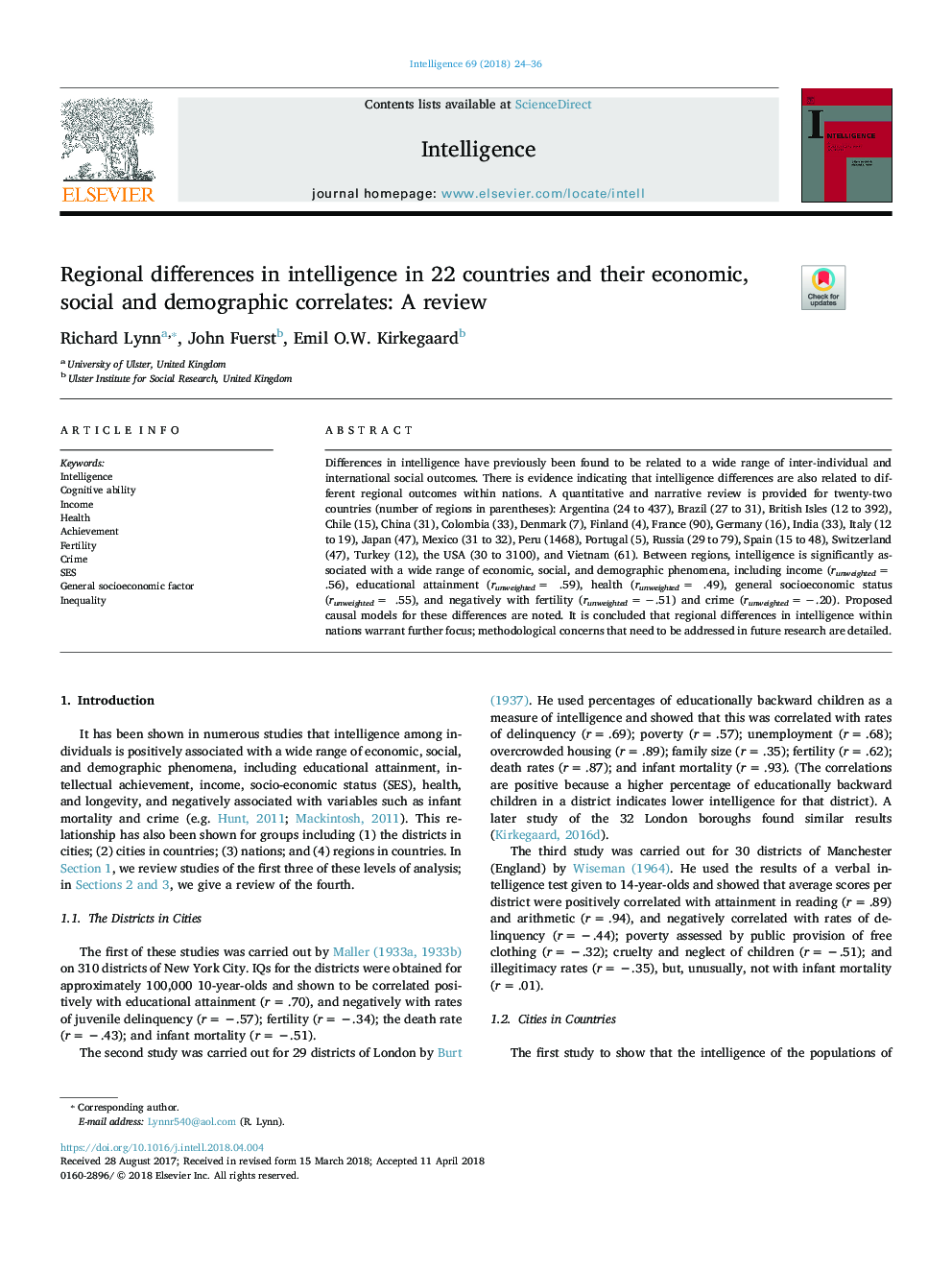| Article ID | Journal | Published Year | Pages | File Type |
|---|---|---|---|---|
| 7292686 | Intelligence | 2018 | 13 Pages |
Abstract
Differences in intelligence have previously been found to be related to a wide range of inter-individual and international social outcomes. There is evidence indicating that intelligence differences are also related to different regional outcomes within nations. A quantitative and narrative review is provided for twenty-two countries (number of regions in parentheses): Argentina (24 to 437), Brazil (27 to 31), British Isles (12 to 392), Chile (15), China (31), Colombia (33), Denmark (7), Finland (4), France (90), Germany (16), India (33), Italy (12 to 19), Japan (47), Mexico (31 to 32), Peru (1468), Portugal (5), Russia (29 to 79), Spain (15 to 48), Switzerland (47), Turkey (12), the USA (30 to 3100), and Vietnam (61). Between regions, intelligence is significantly associated with a wide range of economic, social, and demographic phenomena, including income (runweightedâ¯=⯠.56), educational attainment (runweightedâ¯=⯠.59), health (runweightedâ¯=⯠.49), general socioeconomic status (runweightedâ¯=⯠.55), and negatively with fertility (runweightedâ¯=â¯â.51) and crime (runweightedâ¯=â¯â.20). Proposed causal models for these differences are noted. It is concluded that regional differences in intelligence within nations warrant further focus; methodological concerns that need to be addressed in future research are detailed.
Related Topics
Social Sciences and Humanities
Psychology
Experimental and Cognitive Psychology
Authors
Richard Lynn, John Fuerst, Emil O.W. Kirkegaard,
